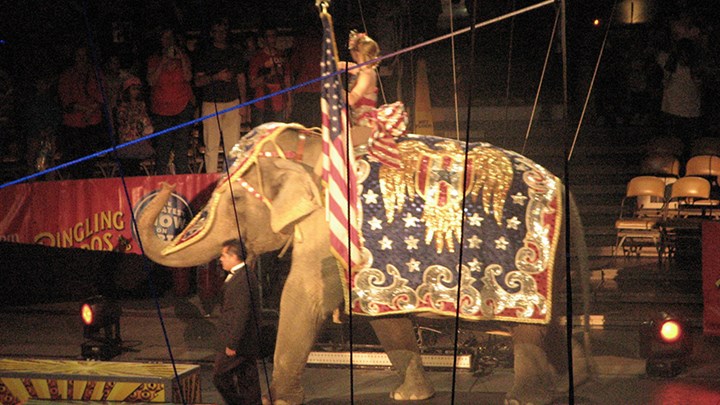
by Cody McLaughlin - Saturday, March 2, 2019

New Jersey animal rights extremists are at it again, pushing the needle of incrementalism in states with friendly governors, bought and paid for by deep-pocketed anti-hunting and animal rights extremist groups like the Humane Society of the United States and the state-level Animal Protection League of New Jersey.
The Issue: Incrementalism
In late December, New Jersey became the first state to ban circuses and carnivals from using wild or exotic animals in shows. Gov. Phil Murphy, the Democrat infamous among the states’ sportsmen for his numerous attempts to outright ban the scientifically-backed and badly needed bear hunt in the state, signed a bill banning petting zoos, fairs, circuses, carnivals and other live events from using “exotic animals” in entertainment acts. New Jersey defines exotic animals as "any species of mammal, bird, reptile, amphibian, fish, mollusk or crustacean that is not indigenous to New Jersey as determined by the Fish and Game Council." Former Gov. Chris Christie refused to sign a similar bill in December 2017 before handing over the administration to Gov. Murphy.
With the decline of circus acts as a form of entertainment mixed with the rise of animal protection legislation and penalties against animal cruelty, though, one might wonder what the impetus for such a bill could be. The answer, much like the movement to ban guns, is incrementalism. Extremists know that they cannot swing the pendulum to demand animals receive full personhood status at the drop of a hat, so they introduce piecemeal legislation such as this to move the needle of normalcy toward their extremist views. This plays out in anti-hunting legislation through the focus on individual species. For example, protesters have focused on specifically ending bear hunting in several states (especially New Jersey), but once a victory is attained, they quickly move on to other “cute” animals like deer or, recently, squirrels.
The Answer: Vigilance
Sportsmen’s groups like the National Rifle Association (through this NRAHLF.org website and others) and other state-level advocacy groups monitor these issues closely as they arise and move through the various legislative bodies. They use their relationships with legislators, leverage their influence through their reach with fellow sportsmen and form carefully crafted coalitions with other like-minded influential groups to fight these deep-pocketed and well organized extremists.
Sportsmen, now more than ever, need to stick together and keep a watchful eye on the laws that govern our way of life. The North American Model of Wildlife Conservation is under attack, and the threat is organized and committed with those who stand against us smart enough to take small bites out of our lifestyle that they can swallow. If sportsmen do not unite and stop these bills, wherever they are, dead in their tracks—whether or not you yourself are avid in whatever sport is on the chopping block—then it will be a matter of time before they come for the whole pie.
About the Author
Cody McLaughlin is a noted conservationist and conservative thought leader on public policy issues including hunting, fishing, gun rights, free-market tax and wage policy and the environment. He works as a GOP consultant for conservative political causes, managing clients’ digital communications and online presence and as a trustee of the New Jersey Outdoor Alliance, helping to represent the state’s 1.2 million sportsmen in the political arena.
E-mail your comments/questions about this site to:
[email protected]
